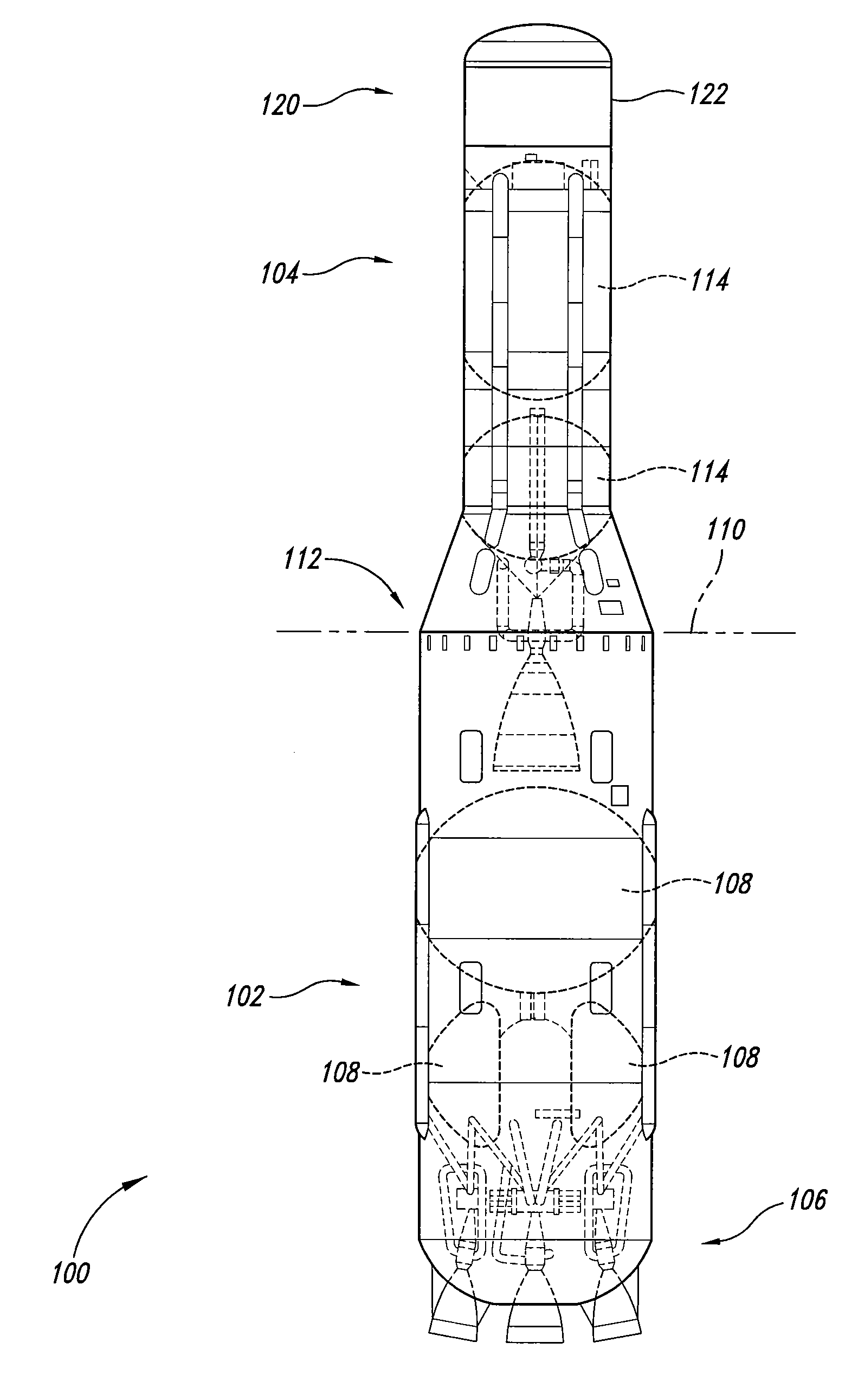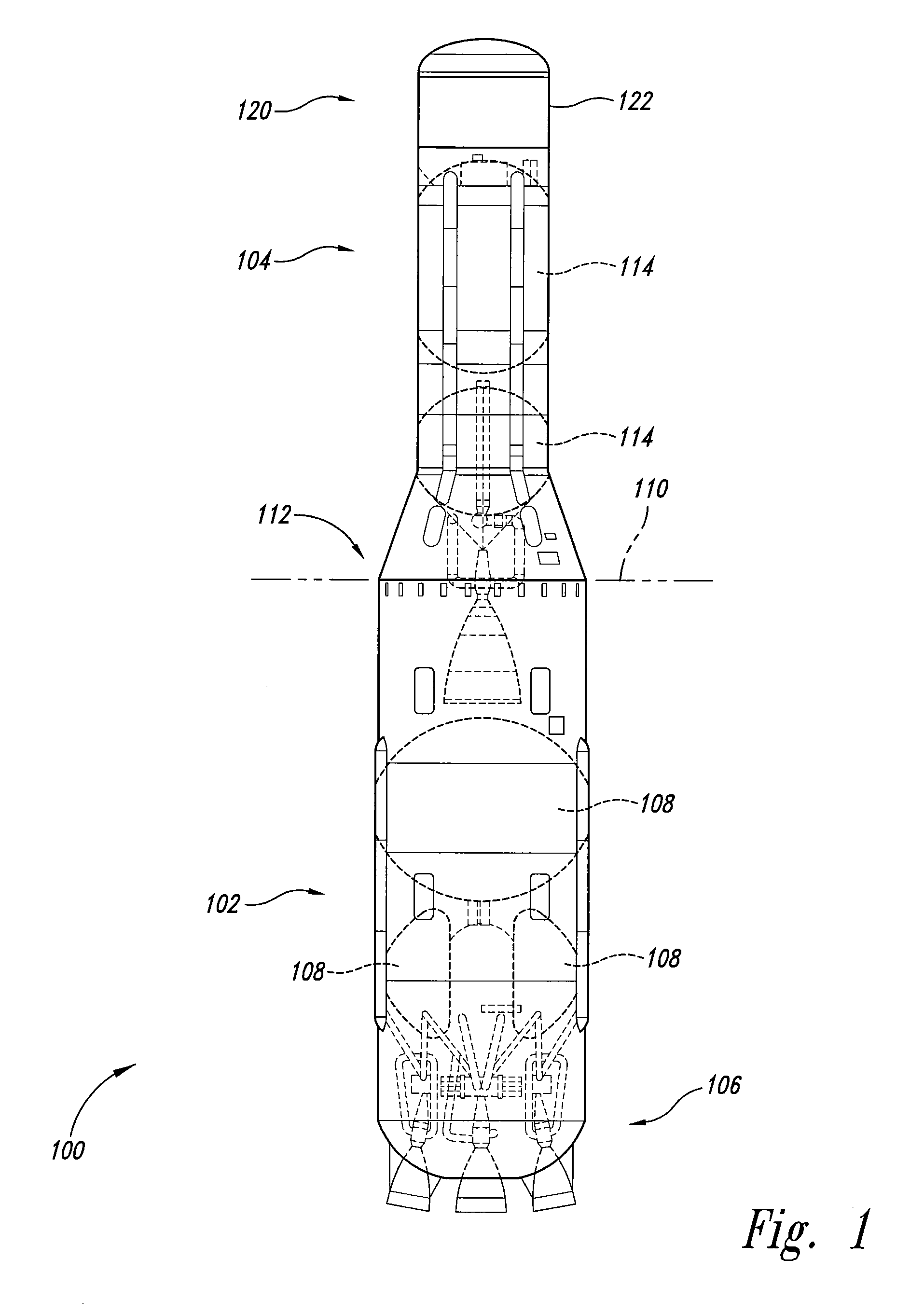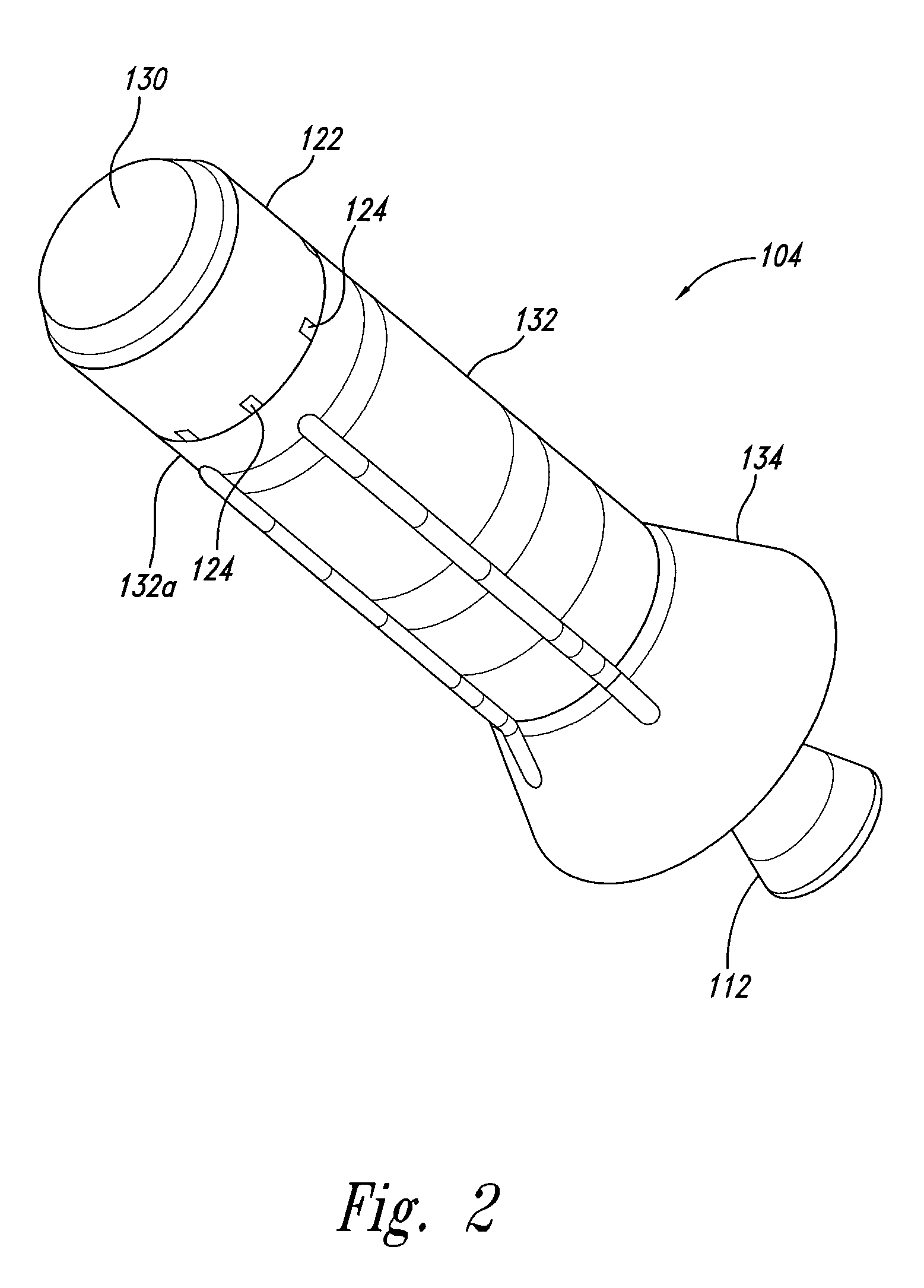Reusable orbital vehicle with interchangeable cargo modules
a technology of cargo modules and orbital vehicles, applied in the field of rockets, can solve the problems of large external fuel tanks burning up on re-entry, not being recycled, and being expensive to launch and operate, and being unable to meet the needs of space shuttles,
- Summary
- Abstract
- Description
- Claims
- Application Information
AI Technical Summary
Problems solved by technology
Method used
Image
Examples
Embodiment Construction
[0028] A reusable cargo module having selected standardized dimensions is designed to fit atop a reusable orbital vehicle to provide low cost delivery and retrieval of cargo into orbit. Although other suitable launch vehicles are possible, the reusable space launch vehicle 100, shown in FIG. 1, may be satisfactorily implemented by the Kistler K-1 vehicle. The space launch vehicle 100 comprises a launch assist platform (LAP) 102, which is sometimes referred to as a booster rocket. An orbital vehicle (OV) 104 is mounted atop the LAP 102. The Kistler K-1 vehicle utilizes three LAP engines 106. Fuel is supplied to the LAP engines 106 from LAP fuel tanks 108. In a typical implementation, separate fuel tanks contain rocket propellant and liquid oxygen (LOX). Operation of the LAP engines 106 and LAP fuel tanks 108 is known to one skilled in the art and need not be described in greater detail herein. The LAP 102 also contains avionics hardware, such as a vehicle computer, GPS, guidance syst...
PUM
 Login to View More
Login to View More Abstract
Description
Claims
Application Information
 Login to View More
Login to View More - R&D
- Intellectual Property
- Life Sciences
- Materials
- Tech Scout
- Unparalleled Data Quality
- Higher Quality Content
- 60% Fewer Hallucinations
Browse by: Latest US Patents, China's latest patents, Technical Efficacy Thesaurus, Application Domain, Technology Topic, Popular Technical Reports.
© 2025 PatSnap. All rights reserved.Legal|Privacy policy|Modern Slavery Act Transparency Statement|Sitemap|About US| Contact US: help@patsnap.com



